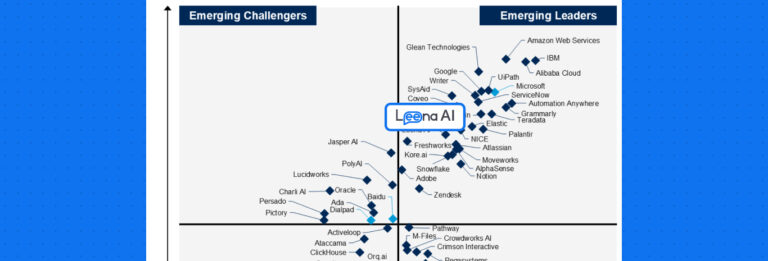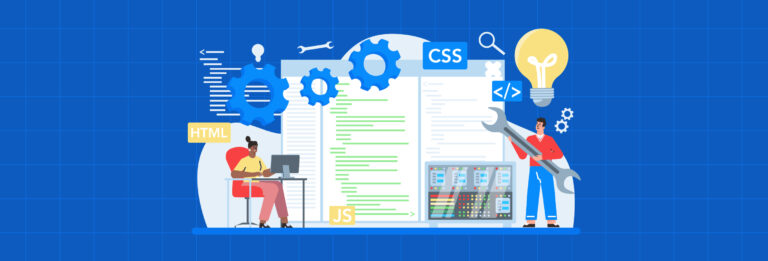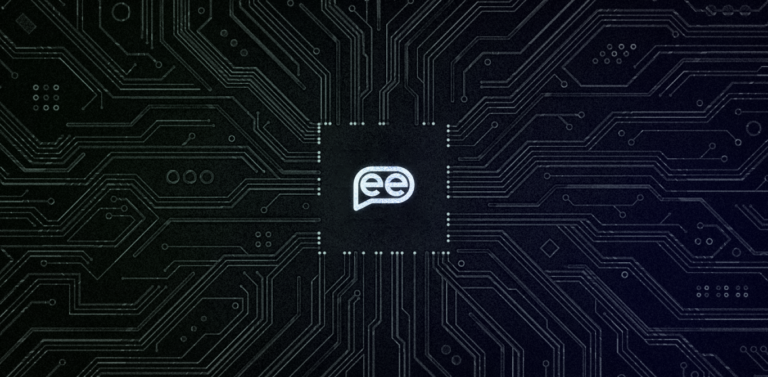The repercussions of the pandemic are still being felt, especially in the HR world. Most HR teams are stretched thin due to massive resignations and job applications. 76% of HR professionals are facing extreme stress in their jobs. Statistics position Human Resources among the top three stressful industries, today. This situation puts HR professionals on the grind and results in the need for intelligent AI virtual assistants for HR teams.
In this blog, we explore what are the characteristics of an intelligent virtual assistant and how to decide on a good one for the team.
What is a virtual assistant?
An AI virtual assistant is an application integrated with Natural Language Processing (NLP) capabilities. It can seamlessly comprehend commands and complete tasks according to the directions given by the user.
The responsibilities of traditional assistants include scheduling appointments, taking notes, sending emails, keeping track of received ones, and many more. Automated virtual assistants follow the same concept but do more.
Besides executing the roles and responsibilities that traditional automation software does, an AI-powered virtual assistant can collect data, provide insights, and automate many regular tasks. These automated assistants are quicker, more precise, and equipped to handle daily repetitive tasks without mishaps.
How are virtual assistants for HR different from chatbots?
Chatbots and virtual assistants are not synonymous. A chatbot is essentially computer software capable of imitating human conversations but is limited by the questions mapped at the backend. Enterprises use chatbots to address common queries and assist customers 24X7. Their functions suit operations like brand engagement, marketing, product assistance, and customer support.
On the other hand, the functions of an automated virtual assistant are more nuanced. An HR virtual assistant goes beyond just interactions and day-to-day tasks like scheduling calls, managing emails, tracking, and notifying about upcoming appointments.
Being powered by AI, it can learn the user’s behavior and preferences over time.
Here are some key differences between the two:
What does an HR virtual assistant do?
The functions of an HR virtual assistant can benefit the company in several ways. From employee onboarding to the exit interview with a departing employee, an intelligent virtual assistant can handle it all.
Let us look at some of the tasks HR virtual assistants can manage:
-
Managing recruitment
From pre-screening to exit interviews, an automated virtual assistant can manage all operations of an employee’s lifecycle. It can also store and process vast amounts of data in no time and help HRs choose the top candidates quickly. The assistant can also automate the pre-screening process with relevant questions for the candidates and select those that meet the job requirements.
HR virtual assistants can also design competitive salary packages, provide insights into the future retention rate of new hires, and collect feedback from the candidates who drop out of the recruitment process.
-
Training and Development
AI virtual assistants help conduct a smooth onboarding experience for the employees by walking them through the training activities. These AI-powered assistants also help recommend upskilling opportunities depending on the employee’s interests and skills with its learning and development program. They can also generate training performance reports.
-
Employee engagement
There is no better tool to achieve employee engagement than AI-powered software. Employees feel more comfortable giving honest feedback about their experience through an HR virtual assistant. The system automatically communicates this feedback to the stakeholders. This provides the company with a chance to bring strategic changes.
On the other hand, employees get fast and accurate answers to their queries, saving time and making them feel valued. AI virtual assistants can monitor employee sentiments, communicate policy changes and important decisions to employees, and schedule various employee engagement activities.
-
Payroll Processing
With an automated personal assistant, The HR department no longer needs to spend hours deploying payroll slips. Intelligent virtual assistants can go through bulk data at once and quickly gauge salary calculations and tax deductions. This ensures the delivery of timely paychecks without the hassle of manually going through all the data.
-
Performance management
Employees can perform better with the help of AI virtual assistants. This AI software provides employees with guidance on how to complete their job-specific tasks effectively. Virtual assistants also help employees with tracking their progress, schedule reviews, and identify improvement areas.
What should you look for while choosing a virtual assistant?
Choosing the right AI virtual assistant is vital for optimizing this technology for your business. An underperforming HR virtual assistant will only be a drain on your organization’s resources, leading to lower ROI.
Before choosing an HR virtual assistant (HRVA), here’s what you should consider:
Compatibility with any device
It will be useless if it cannot assist employees and HR from different devices. Make sure that the automated virtual assistant you choose is compatible across devices like phones, laptops, and tablets of both android and iOS.
Easy-to-use interface
A complicated virtual assistant will only confuse your employee, not help them. Make sure the software contains a simple interface and is intuitive and comprehensive.
Smooth scheduling
For optimum results, you must ensure the virtual assistant is equipped with intelligent scheduling features. This way, meetings, and work schedules will be different so that participation in meetings, as well as productivity of work, are not hindered.
Task management
Your virtual assistant should have a task management feature that allows you to add new tasks, track the progress of the tasks, and notify when they are complete. This builds transparency and smooth distribution of work among the employees.
Expense tracking
Always choose a virtual assistant that has expense tracking features. This way, the software will accurately show you where the money is being spent and how much money is coming in as revenue. This way, you can avoid any mishaps in expense reports and successfully cut costs and ultimately make an adequate budget for your company.
Reminders
One of the key features a virtual HR assistant should have is sending timely reminders and notifications to the concerned employees. There is no point in having a virtual assistant if your employees end up missing important meetings or tasks.
Alignment with your business
Not every virtual assistant would seamlessly work for different industries and businesses. You should go for the AI assistant, which has features serving your business’s specific requirements.
Smooth customer support
You cannot risk having your virtual assistant glitch at peak working hours. There will be times when you will have issues with handling the software. So, make sure the support team of your chosen virtual assistant helps you with queries quickly and provides you with comprehensive and valuable guidance.
Multilingual functionality
With a diverse work culture, it’s only fair to have a virtual assistant capable of deciphering more than one language. Such inclusive features make employees feel respected and valued.
Integration with existing tools and channels
With many options available in the market, you should choose the ones that will smoothly integrate with your company’s existing tools. This way, employees will not face any service disruptions, and the workflow will be consistent.
What’s the role of AI in virtual assistant technology?
The role of AI-driven virtual assistant technology is substantial in today’s fast-paced world. These include the following points:
- Virtual assistants can swiftly process and assess large amounts of data, saving the HR department time and effort.
- It not only communicates with the user but also deciphers the sentiment behind the conversations, provisioning a more humane and engaging experience by providing the correct information.
- Stores all relevant data, avoiding accidental loss of crucial data.
- With its advanced features, the HR department is saved from the grinding of a tremendous workload. As it performs mundane and repetitive tasks smoothly, HR professionals’ efforts can be directed toward more strategic solutions.
A good automated assistant can revolutionize how your organization conducts daily operations. With a seamless Artificial Neural Network, a powerful HR virtual assistant increases productivity and employee engagement, bringing in a positive employee experience, and making the stressful work life of HR professionals a lot easier.
With the changing times, workplaces worldwide are implementing technology in their daily operations. Considering the success rates and recent trends, AI-powered virtual assistants are the future of an efficient workplace.
Don’t have a virtual assistant yet? It’s time to explore one with Leena AI.






